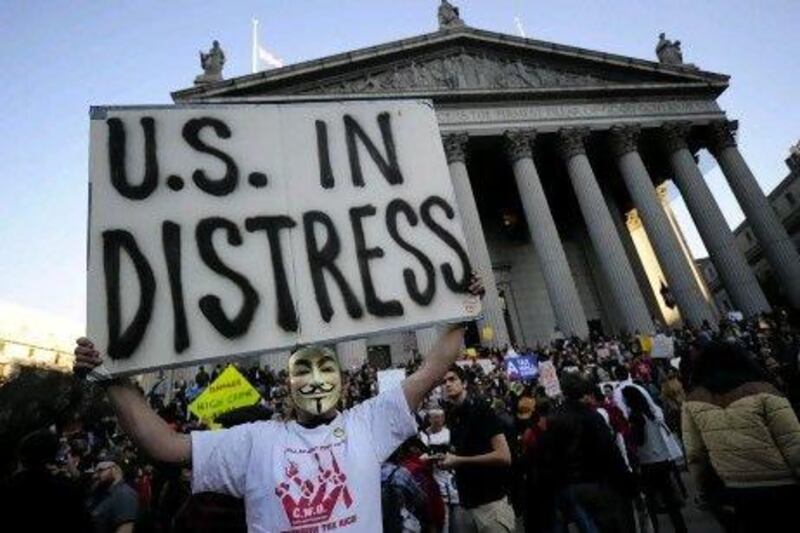With the euro-zone in a debt crisis, stagnation in the US, a complex outlook across the Middle East, unemployment rising, slowing growth in the emerging world and anxiety about a global recession returning, one thing is clear: we need new models for collaboration.
Road to ruin or recovery?
Euro Zone The National charts Europe's struggles as it attempts to through of financial crisis. Learn more
These are dangerous, pessimistic times.
According to a survey of 1,500 international experts conducted by the World Economic Forum, confidence in the future is extremely low. Less than 10 per cent expressed confidence in the state of the world economy. And just 10 per cent expressed confidence in the state of global governance over the next 12 months.
It is clear that the complexities of the 21st century are outstripping the capabilities of our existing economic and governance models.
We need radical progress in governance frameworks, in the models that we apply to complex problems. We need models that are capable of cutting across nations, industries, cultures and currencies to address the challenges we all face in today's complex, inter-connected world.
What might these new models look like? Some ideas include new models for fiscal governance to global and regional challenges.
To contain the multiplying fiscal crises currently at the heart of jittery outlooks for the euro zone and the US, countries should implement rules-based systems with concrete, transparent and measurable debt-to-GDP targets for medium-term consolidation.
To mitigate the important spill-over effects of fiscal crises, international cooperation should focus on the financial and legal issues in restructuring bank debt.
The concept of a global financial "safety net" would include a permanently available flexible credit line offered by the IMF, in addition to the creation of a short-term IMF lending facility for such circumstances. Countries will need time to effectively co-ordinate their macroeconomic policies. In the short term, the G20 group of developed and emerging economies should help to resolve imbalances by ensuring buy-in from both creditor countries and debtors.
But as countries revisit their domestic policies, they will need to expand these policies beyond mere quantitative targets and incorporate new institutions that make sustainable policy adjustments as needed.
To speed economic recovery and create sustainable growth, we urgently need new models to address innovation.
The world needs a new model for global innovation, incorporating an infrastructure for sharing data, connecting the relevant players and create common "taxonomies" — fuelling new collaboration between business and science. Open science facilitates co-operation and innovation across academia, research institutions and other stakeholders.
Youth employment, one of the world's most significant creeping structural problems, needs to be tackled head on.
Public-private partnerships will need to provide training in both technical and non-technical employment skills, based on assessments of real labour market demand. In addition, it is critical to provide capital for youth-owned enterprises and to develop financial products specifically targeting this population.
We need to look at new models to reduce poverty and strengthen livelihoods in developing countries.
In regions where agriculture is important, improving existing production methods is essential. For example, experts should consider establishing an African equivalent of the International Finance Corporation to provide new financing options for mid-tier businesses.
Credit financing mechanisms for smallholder African farmers would go a long way towards helping self-employed food producers to identify market opportunities, develop business plans, introduce new farming techniques — and improve the economic livelihood for both themselves and their communities.
The most pressing global challenges require collaboration among organisations, nations, industry and civil society.
Without agreement across all these stakeholders, efforts fail.
Without innovative thinking around new models, together with new ways of forging consensus and moving ahead, the list of crises worrying the world's experts is unlikely to get any shorter.
* Børge Brende is the managing director for government relations and constituents engagement at the World Economic Forum.
The WEF and the UAE will host a summit on the Global Agenda in Abu Dhabi today and tomorrow.





